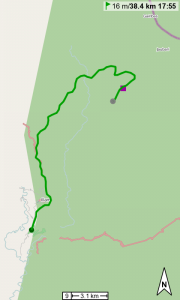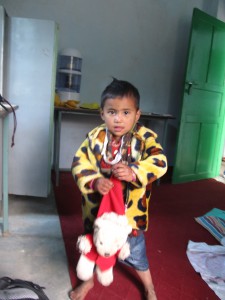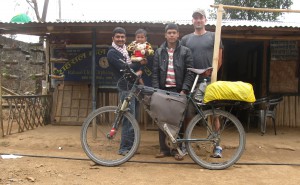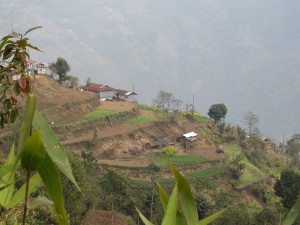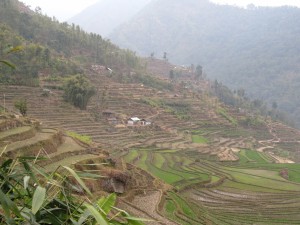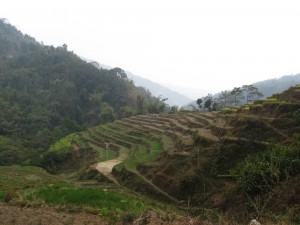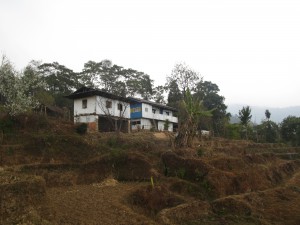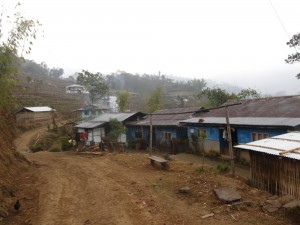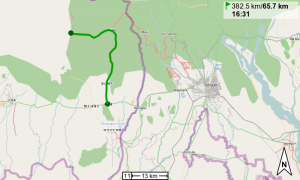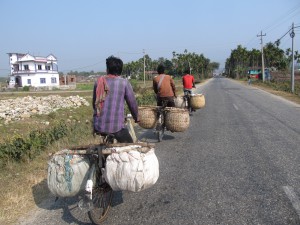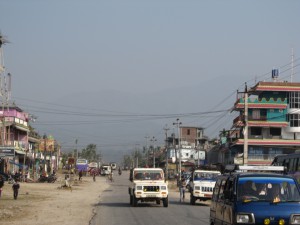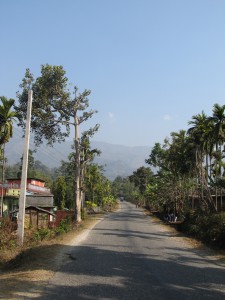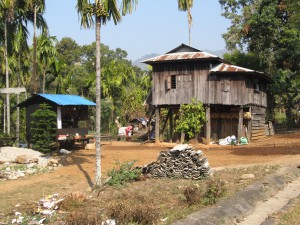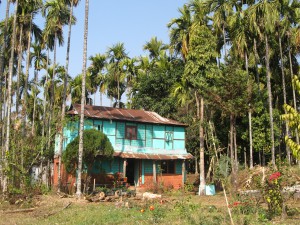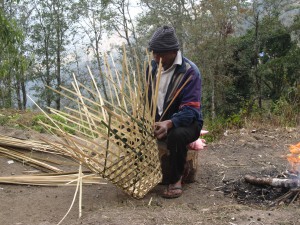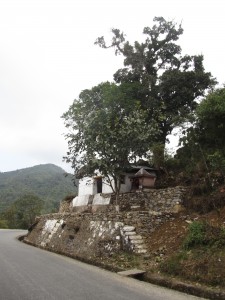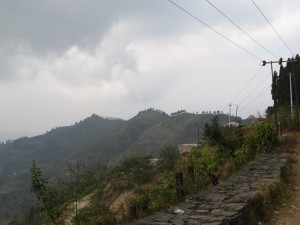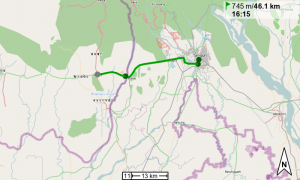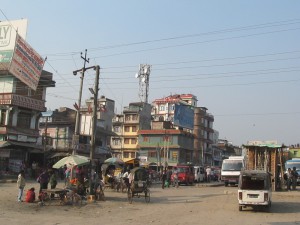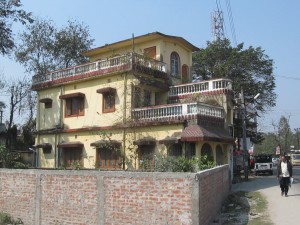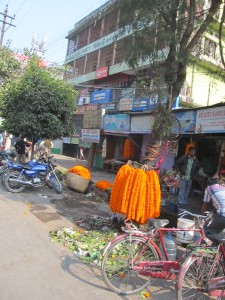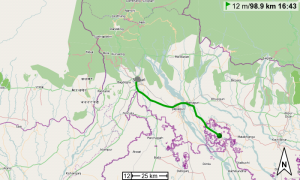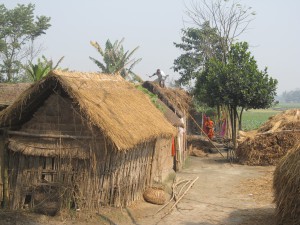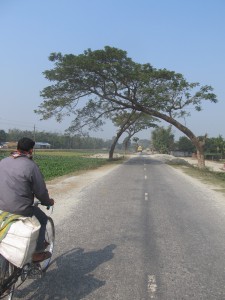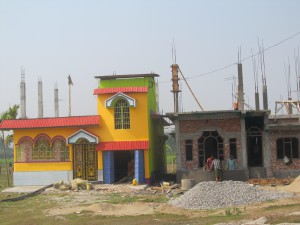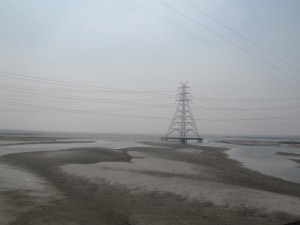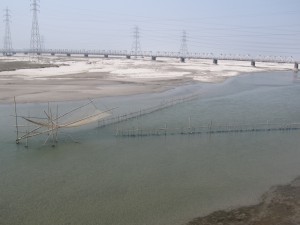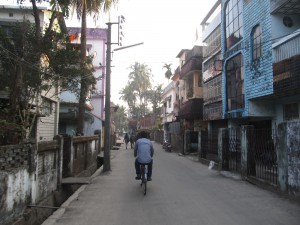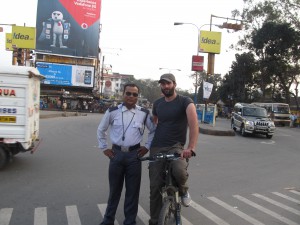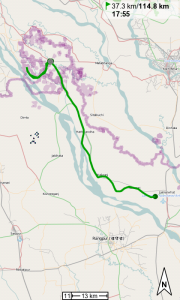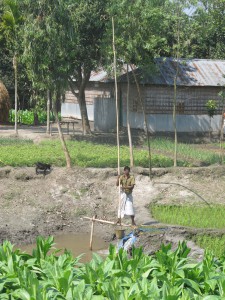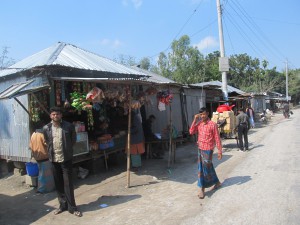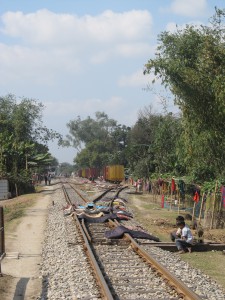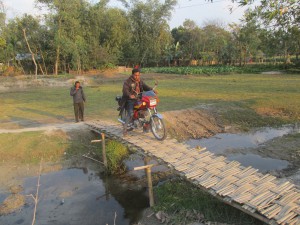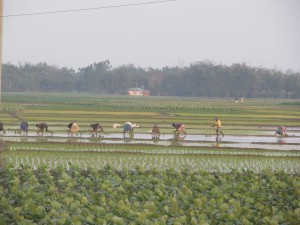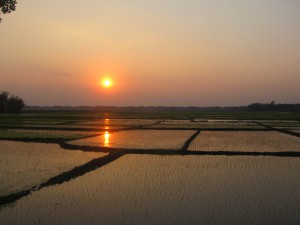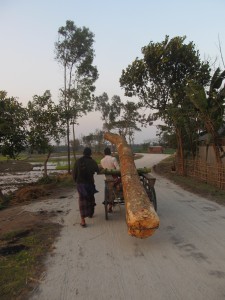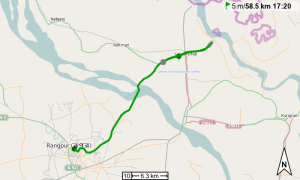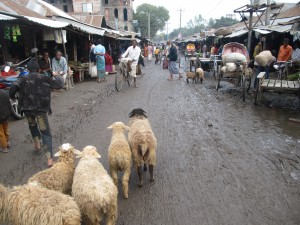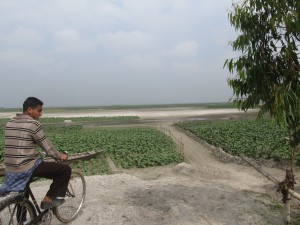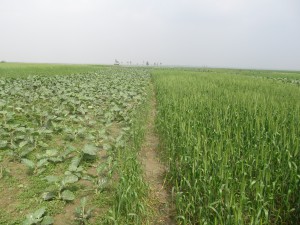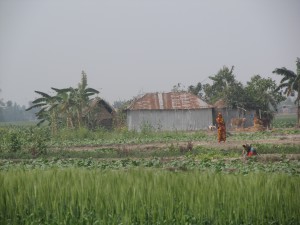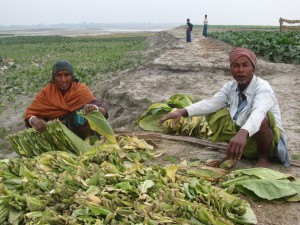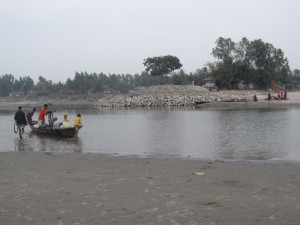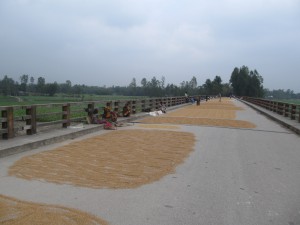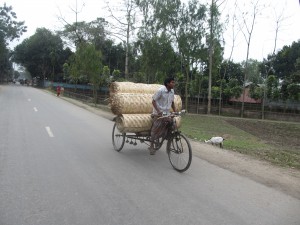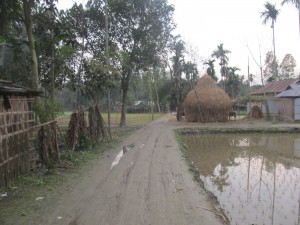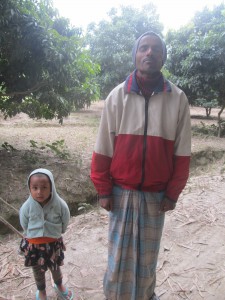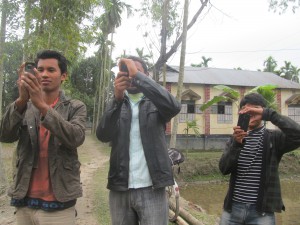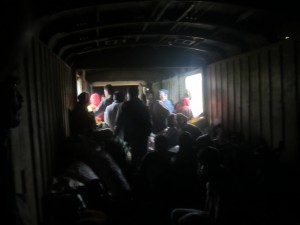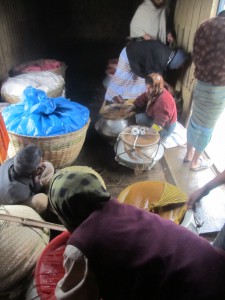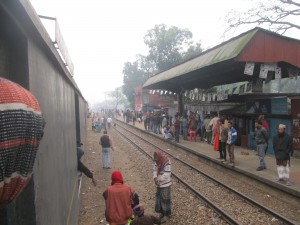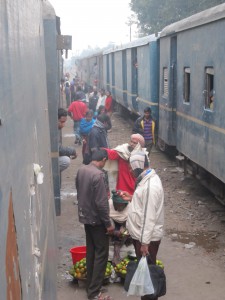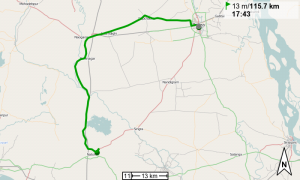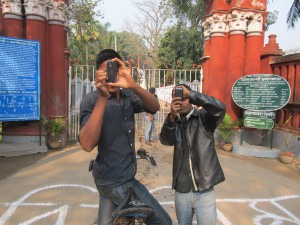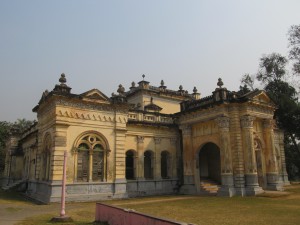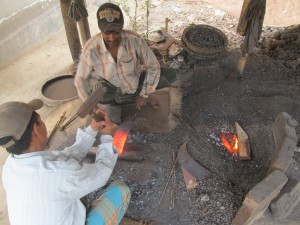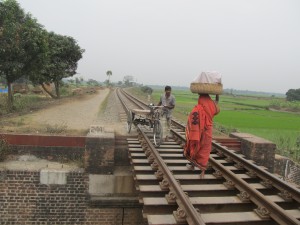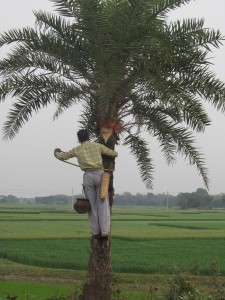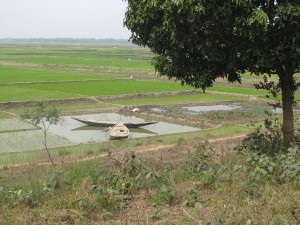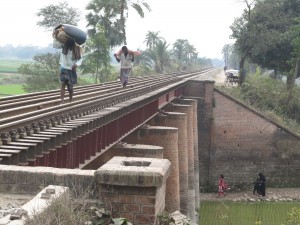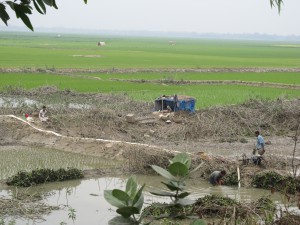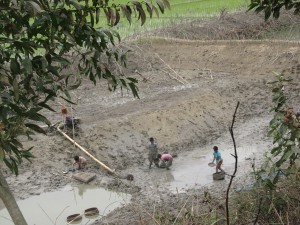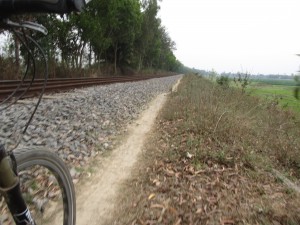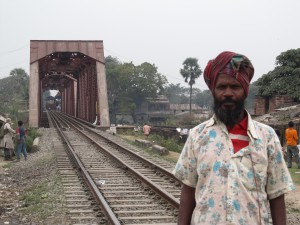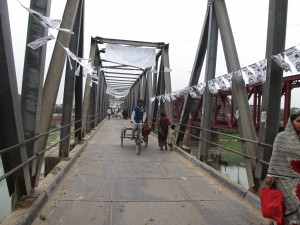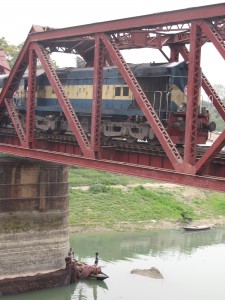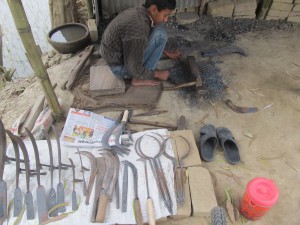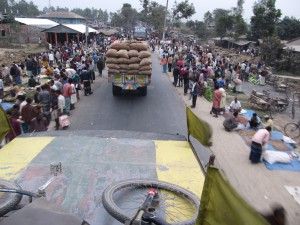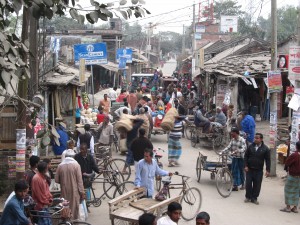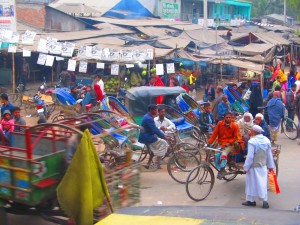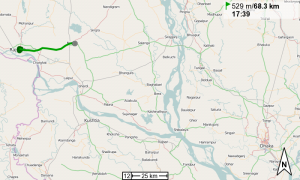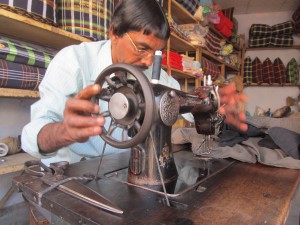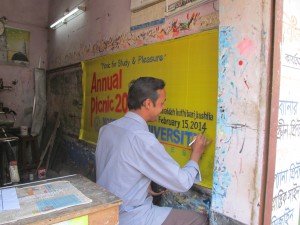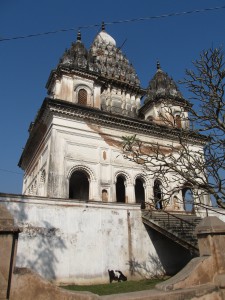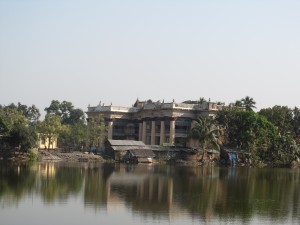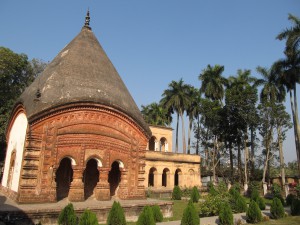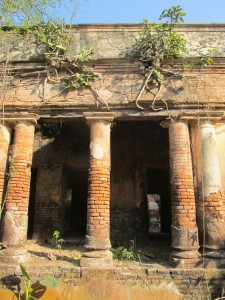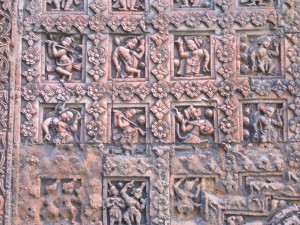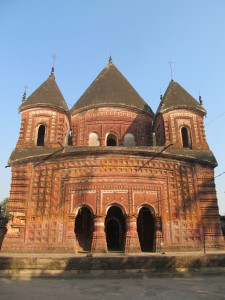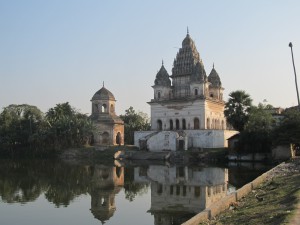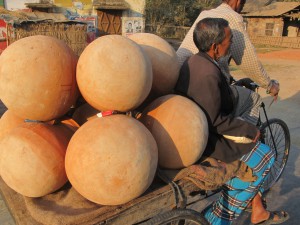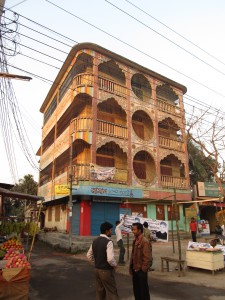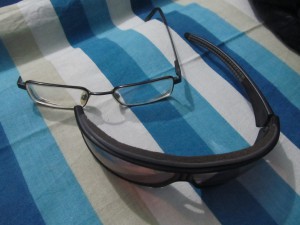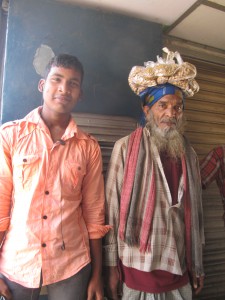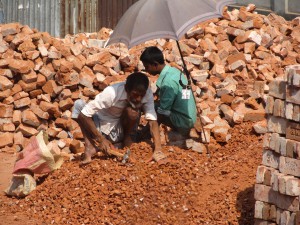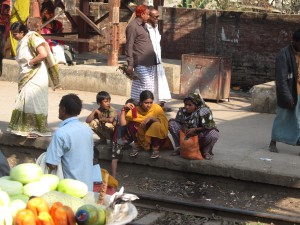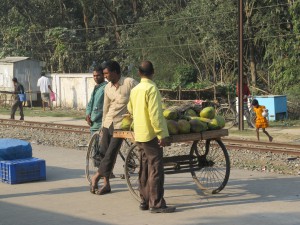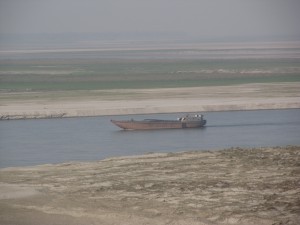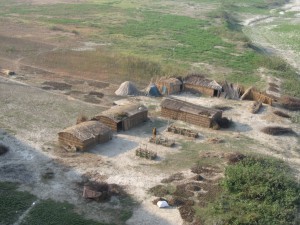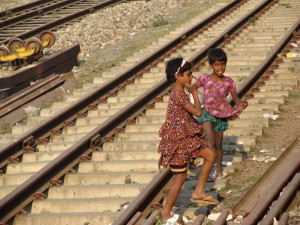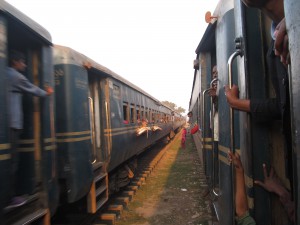Last night I shared the room with a brother of my host Jiwan. He is development officer for the village. I’m not sure what that means, exactly.
I had tea at Kolama’s, then breakfast at Jiwan’s, and then was rushed on a motorbike with Tonka, teacher at a primary school in the Jamuna community. I was told he would help me find a guide to track down the Red Panda. The ride went past the degree confluence again. I do understand now why yesterday everyone said it’s a dangerous road. It certainly is more dangerous on a motorbike than on a bicycle. After a few kilometers he stopped, locked up his motorbike in a shed at the roadside, and we climbed up on beautifully narrow and steep footpaths to his school, between terraces and people’s houses. He said it’s a 20 minute walk and he does it every day. The weather was lovely and the kids where taught outside the building in the sun. Elderly ladies with weathered faces sitting near-by, chatting
The guide, Tonka said, would come over ‘after some time’.
The guide and a boy and I left at noon and walked up to the forest. We had a short rest at someone’s house where they had a glass of alcohol each. To my surprise the path we followed was paved.
We climbed around in the forest, through young bamboo and between old trees. But all we found was the ‘Red Panda toilet’ and orchids.
Tonka had finished his classes and took me back on his motorbike. I asked him to drop me off near the confluence, 27N88E. It was just some 150m away, on the slope above me. I set out through terraced fields and across overgrown terraces. I stumbled on a man-made path which led me directly to the confluence. The GPS was still a little shaken from the motorbike ride and the trees didn’t help with getting a good fix, but I can say with some certainty that I was either directly at 27N88E or at least within a small radius. I was not the first person at the spot, for sure, but the first with the intention of visiting it for the Degree Confluence Project. I took the pictures required by the DCP and walked back to Pyang.
These confluence visits are getting more and more awesome. They keep bringing me to places that I wouldn’t have visited on my own and which few, if any, other travellers go to. The resulting experiences are fantastic.
Back in Pyang I said hi to Kolama and had one of her wonderful teas. She said I shouldn’t have taken a guide and I can see now why that is. Next time I will know where to look for the Red Panda, and when (in the morning!). Then I got invited from house to house for a glass of Tin Pani. Last but not least I had one at Jiwan’s before dinner.
I shall leave Pyang tomorrow, towards Phikkal. I really like this place and I will visit again should I ever come back to Nepal.

